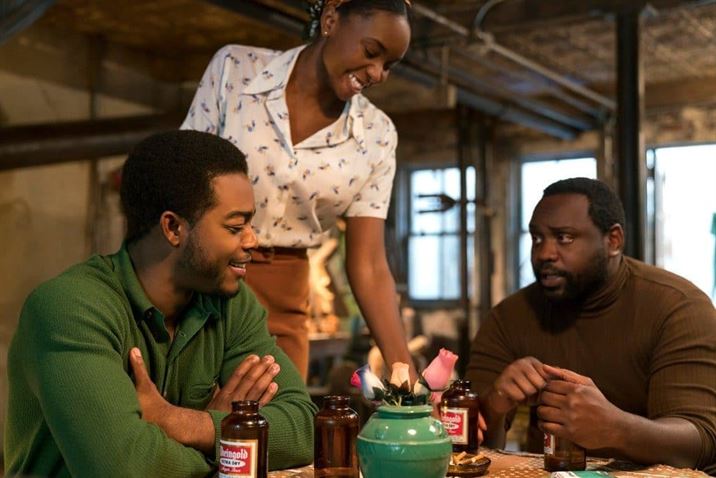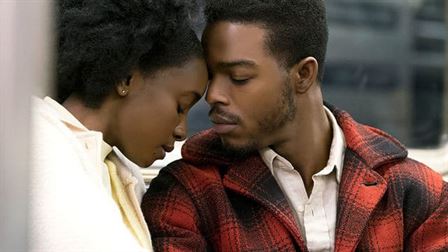Barry Jenkins follows his Oscar-winning film “Moonlight” with “If Beale Street Could Talk,” based on James Baldwin’s 1974 novel. The film centers around a young African-American couple attempting to keep their love alive after being forced apart by racial injustice and wrongful incarceration.
Having won the best picture award at the Oscars, “Moonlight” was a tough act for Jenkins to follow. Much like the 2016 film, “If Beale Street Could Talk” is a powerful and intimate depiction of African-American lives in an unfriendly world.
The film begins with 19-year-old Tish, played by KiKi Layne, sharing the news that she is pregnant with her 22-year-old boyfriend Fonny, played by Stephan James. “Beale Street” then cuts back and forth in time to show the two as childhood friends, soon falling in love in Harlem, New York. The film mainly focuses on Tish and her family during the present attempting to free Fonny from prison after he is falsely accused of rape.
“If Beale Street Could Talk” is a film that manages to highlight the beauty that is emitted from both Tish and Fonny’s love and from strong family bonds while at the same time displaying the ugliness of the environment around them. “Beale Street” can definitely be seen as a love story, and the fact that there’s a sense of realism and tragedy embedded within it doesn’t make it any less romantic.
The audience is exposed to an array of relationships that persevere in an unkind environment. Tish and Fonny fight for their love when Fonny is sent to prison, Tish is embraced rather than berated by her family when they discover that she is carrying a child, and there are even a few characters in the film that demonstrate minor acts of compassion that prove to be significant to the main characters.
Although “Beale Street” presents these relationships in a time of hardship and hostility, they still prevail, emphasizing the importance of love when surrounded by hate.

From left to right: Stephan James, KiKi Layne and Brian Tyree Henry all give moving performances in Barry Jenkins’ “If Beale Street Could Talk,” an adaptation of James Baldwin’s novel. Photo courtesy of Annapurna Pictures
There are scenes in the film where Jenkins uses color and music, along with the lack of dialogue to portray characters in a way that’s melodic and hypnotizing. One scene in particular shows Fonny working on an art sculpture while a cloud of gray cigarette smoke slowly escapes his mouth. As the camera circles around Fonny, light is cast on him while Nicholas Britell’s alluring yet haunting score is played.
Jenkins depicts Fonny in an almost angelic way, full of innocence and love. This is the same innocence and love that Tish sees when she looks at Fonny, and what Jenkins wants the audience to see when he crafted this mesmerizing scene.
“If Beale Street Could Talk” is filled with powerful performances, especially from Regina King and Brian Tyree Henry. King plays Sharon Rivers, Tish’s mother, who refuses to sit back as the father of her grandchild is wrongfully imprisoned. King delivers so much emotion throughout the film, even in one scene in particular where she has no lines at all. Sharon is shown staring at herself in a mirror, wig and scarf in hand, preparing to perform a crucial task for her family. This scene is delivered with so much unspoken passion from King, urging the audience to dig deeper into the character’s mind.
Henry plays Daniel Carty, a friend of Fonny’s, who was recently released from prison. Daniel sits with Fonny, engaging in friendly conversation and catching up on things. This loving demeanor is soon replaced by a more somber bearing as Daniel describes his time in prison after being framed by the police. The camera holds on Henry as he gives a truly eerie performance, illustrating the devastating story of racial injustice in America.
“If Beale Street Could Talk” is a gorgeous, yet painfully real love story. Jenkins’ film demonstrates how relationships and trusting love can combat hatred and systematic racism but can many times never gain the privilege of having a happy ending.



